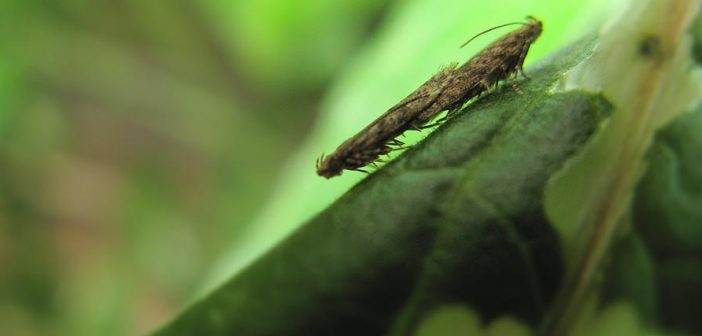Trials funded by AHDB Horticulture have discovered a synthetic sex pheromone that confuses male Tuta absoluta moths so they can’t find females to mate with. The chemical, Isonet-T, offers new hope to commercial tomato growers for control of the devastating pest.
In the trials the mating disruption technique led to complete population control with no visible crop damage during the first 22 weeks when placed amongst plants on arrival in glasshouses. At the same time, growers adapting the research for their own trials also experienced exceptional results with pest population growth stopping immediately.
Richard Bezemer, Cleveland Nurseries, who participated in the trials said, “We experienced severe Tuta absoluta populations in 2016 for the first time. The trials have been so successful in our nursery that we now believe we are completely free of the pest and the cost of the pheromone off-set investment in other control products.”
Gracie Emeny, knowledge exchange manager at AHDB Horticulture, added, “We thought Tuta absoluta was under control but it came back with a vengeance in the 2016 season after developing resistance to one of the key plant protection products used in integrated pest management programmes. This is a brilliant breakthrough for the industry but we would stress the need for careful use to make sure this control option stays available to growers for the long term.”
Further work is now underway at University of Exeter, to study the impact of the technique on female moth reproduction.

Photo Caption: Tuta absoluta
Photo Credit: Rob Jackson / AHDB Horticulture
The post New mating disruption technique offers hope for Tuta absoluta control appeared first on Hort News.